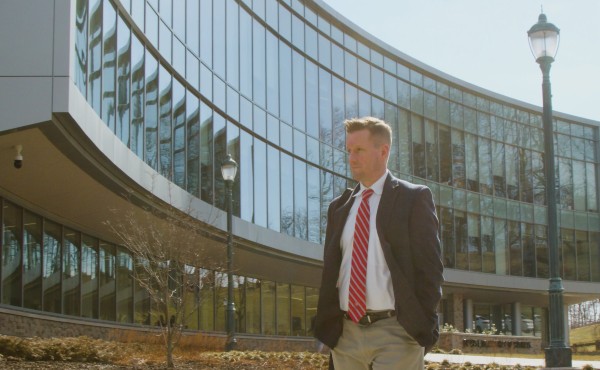Fairfield University prides itself on offering a quality curriculum across multiple fields of study.
This broad range of disciplines begs the question of what sets each school apart. What could provide better insights than the aspects of the curriculum as well as the students themselves?
For the Egan School of Nursing, the numbers and rankings speak for themselves as one of the best programs in the state with a variety of hands-on experiences in the field.
The same goes for the School of Education as it has dozens of programs and certificates, opening the door for a lot of opportunities for prospective teachers. Skylar Seifart ‘24, who has taken several education courses here, believes the curriculum has given her the ability to “narrow down her goals within the field.” She also acknowledged the beneficial opportunities within Student Engaged Learning Hours which involves the chance to observe a wide variety of classroom experiences. Seifart specifically mentioned how a class she took known as: ‘Special Learners in the Mainstream’ led her “to view (her) future profession in a different light.” The university makes it a priority to not just teach students the necessary skills in a specific profession, like teaching, but also show how it is put into practice.
The College of Arts and Sciences is also one of the top-ranked schools for ‘Communication & Media Studies in Connecticut’ according to College Factual. They are also acknowledged as one of the top 15 schools in the U.S. for Communication/Journalism Majors by the Payscale College Salary Report.
Dylan Ruddy ‘24, a Communication major with a Film, TV, & Media Arts minor here at Fairfield, acknowledges how the school “lays the foundation for networking with potential companies” and grants “opportunities to connect with a vast array of alumni with years of practical experience.” The most notable aspect of the school, according to Ruddy, is the staff’s emphasis on personal development. “Their eagerness to further develop my career during college and after graduation is a testament to their focus on caring for their student’s academic and personal lives.”
The School of Engineering & Computing stands out with its 100% placement rate six months after graduation, but also through its hands-on experience in the field. “In freshman year, every student must contract a flotation device that can be used to support one student in the local pool in the RecPlex which is then raced against other students in the department”, Kameron Reynolds ‘24, a student in the school mentioned. “At the beginning of senior year, you are presented with a multitude of potential projects to work on. These projects may be contracted from outside corporations that have partnerships with the University, and others can be produced by the University itself.”
One of the most hands-on courses that Reynolds highlighted was ‘Robots’ which involves “coding and building electrical circuits that will be tested at the end of the course. The course also includes the opportunity to go to a nearby school to teach the students how to build circuits and test them.”
The School of Engineering and Computing not only tries to present students with a wide range of topics and courses for full immersion in the field but also prioritizes hands-on experience. This emphasis not only furthers understanding of the material but also contributes to the school’s exceptional placement rate for students after they graduate.
Dean Tobin ‘24, when talking about the Dolan School of Business, reiterates that they “have some of the best alumni who go on to achieve incredible successes” and how “it has offered (him) some of the greatest extracurricular activities along with the most challenging and rewarding classes.” Tobin also mentions how the school ties in the social justice and Jesuit learning components.
A consistent theme across each of the curriculums is the emphasis on practical experience and relevant skills for life after graduation.
What stands out after learning more about Fairfield education is the Engineering School and its extensive programs and course selection. In such a broad field, it really allows students to narrow down their particular interests and career pursuits, while simultaneously being able to explore all of the options at their disposal with a hands-on approach.
Simply memorizing material isn’t enough; it’s crucial to apply it in real-world scenarios for years to come and the common sentiment is that each of the schools at Fairfield successfully achieves this objective.


Leave a Reply